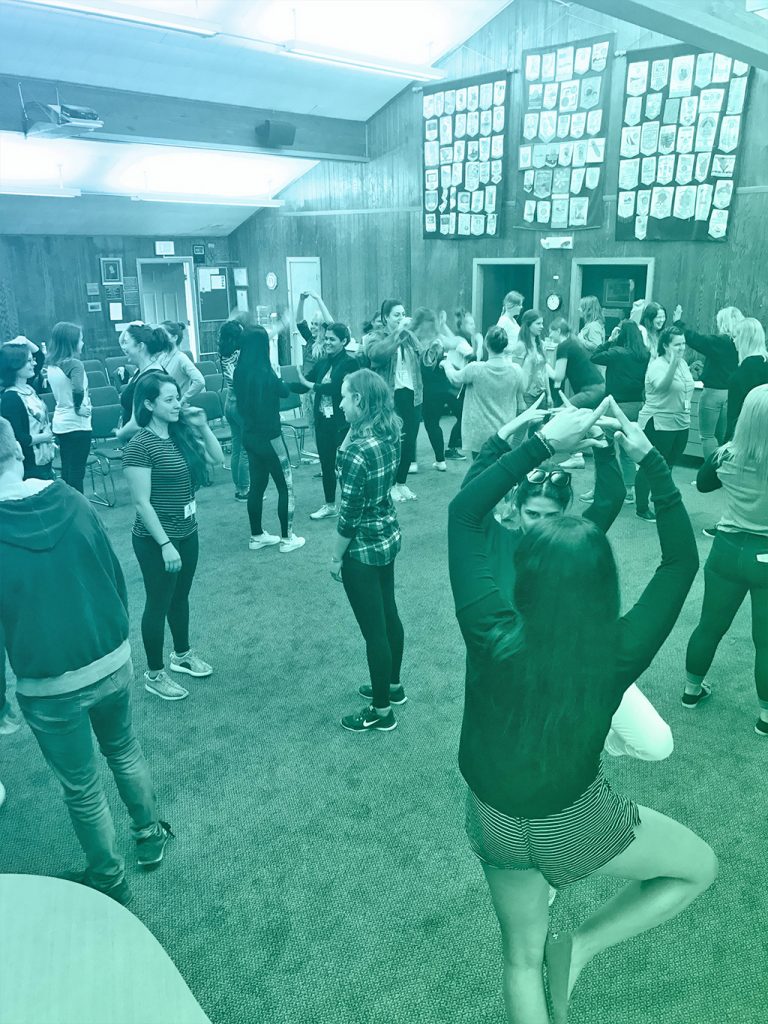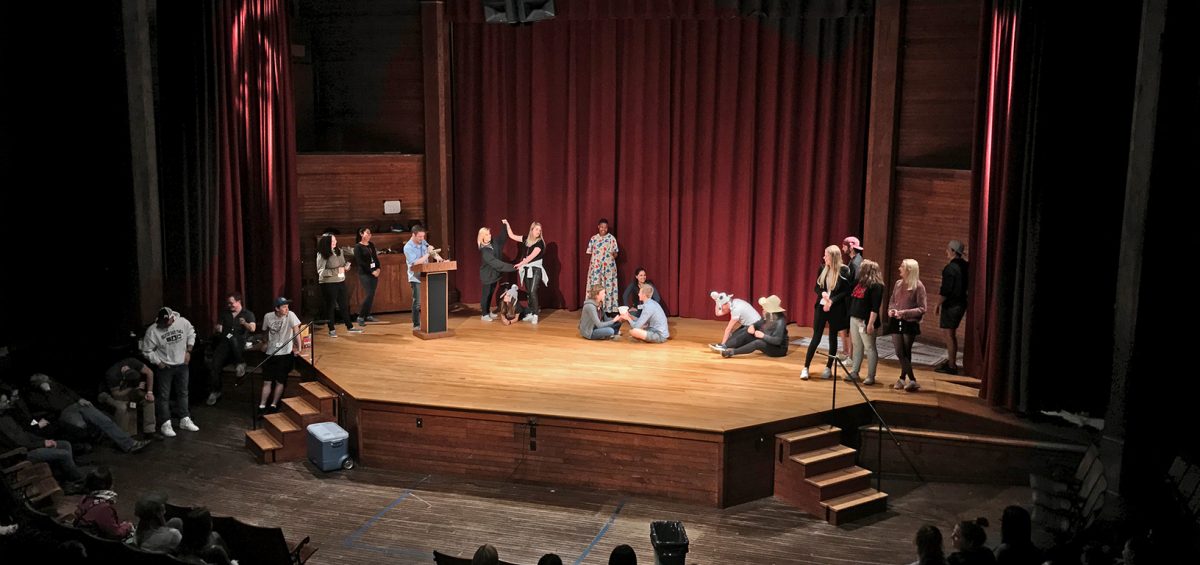Since the time of the Ancient Greeks, theatre and drama have been a form of entertainment for the common people and those who were higher in class. We as humans, need an outlet to help us forget about our daily trials and tribulations. In today’s world, we have many options of entertainment, but before TV and iPods, theatre was one of the earliest forms of performance.
Back in the past, just like today, many things were changing within economics, politics and policies, social stature and rights, the idea of love, and the earth itself. With theatre, these topics could be the entire theme of the play, sharing what ideas might not be as conventional within day to day activities. It helps us explore different perspectives and ideas, making us wonder “well, what if??”
Theatre is not just entertainment in today’s world. Sure, we go see productions or musicals, but we actually use theatre in everyday life. Meeting someone new is a form of improvisation. You don’t know how this new person will react to what you say and vice versa. Using your hands to speak because your mouth is full can be compared to the technique of pantomime. Even going into a job interview takes elements from knowing what you prepared, and memorization is a huge tool needed to be successful in theatre. Public speaking also directly connects to theatre’s idea of monologues.
Whether you like it or not, everyone is an actor. In our theatre class, we explore these techniques that actors use by performing exercises that go hand in hand with how young actors start. And since we are all actors, Shakespeare was right, “the world is our stage.”
– Dan

Students learning Improv & Pantomime exercises in Theatre Class


